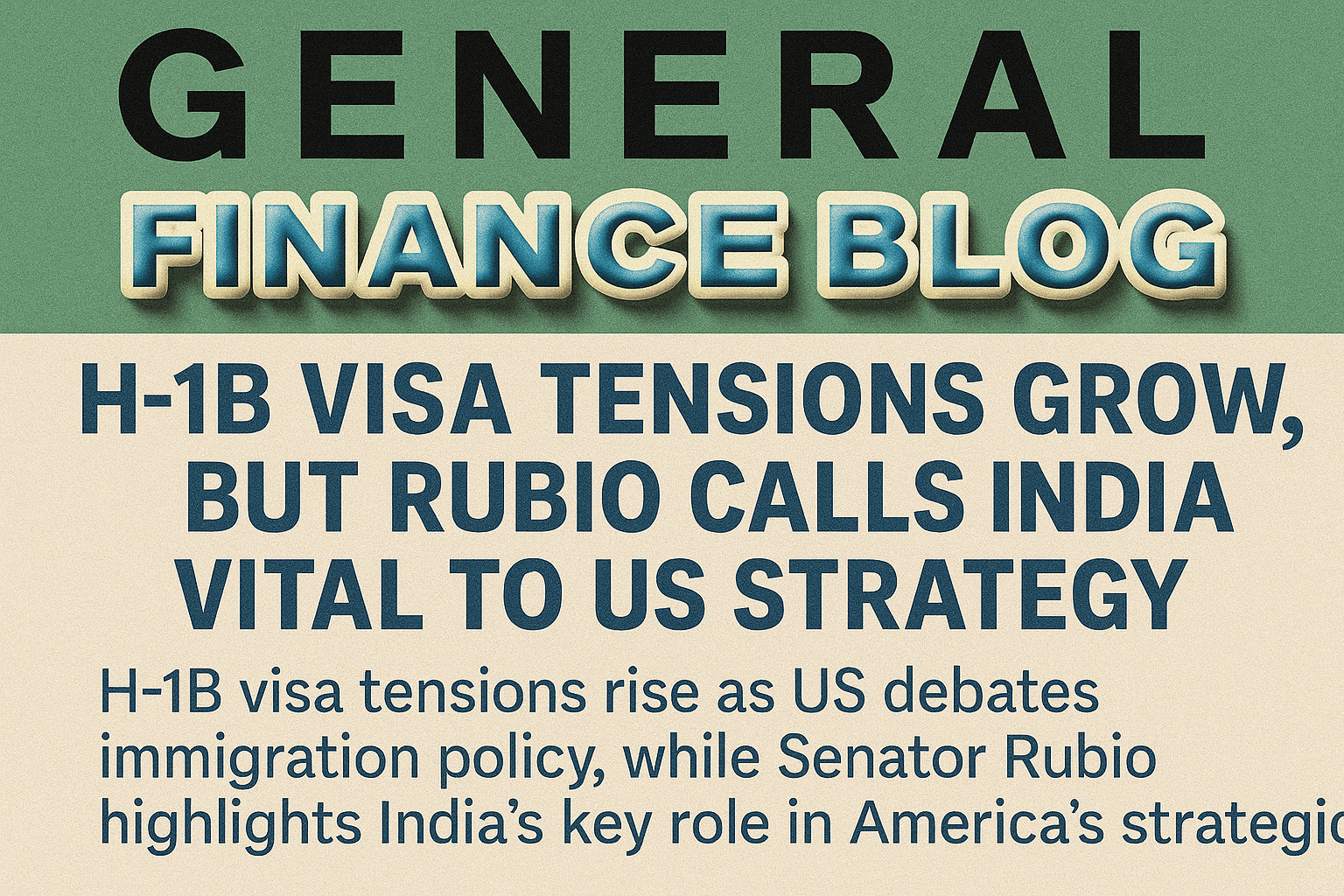
US Secretary of State Marco Rubio has described India as “critical” to the United States, highlighting the essential partnership between the two countries even as tensions rise over new H-1B visa rules. President Donald Trump’s recent move to impose a $100,000 fee on new H-1B visas has shaken India’s tech sector and drawn concern from both governments.
Rubio and Jaishankar Meet in New York
Rubio met with Indian External Affairs Minister S Jaishankar at the United Nations General Assembly on Monday. The summit followed Trump’s visa declaration and recent Indian goods tariffs only days prior. Even so, Rubio highlighted that “India is a relationship of critical importance to the United States,” and commended continued collaboration in trade, defense, energy, pharma, and critical minerals.
Jaishankar concurred on the importance of having unremitting communication, and post-conference, the two sides deliberated various bilateral and international matters of contemporary significance and decided to remain in regular touch so as to make headway in issues of priority.
Visa Fee Sparks Panic and Market Reaction
The Friday move of charging a $100,000 fee for fresh H-1B visas, impacting primarily Indian professionals, has panicked India’s IT industry. Approximately 71% of the total H-1B visas that were issued last year were to Indians, whereas just 12% were to Chinese applicants.
Following the announcement, stock values of major Indian tech firms dropped by around $10 billion, and many professionals expressed confusion and anxiety about their future.
The $100,000 fee is a sharp jump from previous costs of $2,000–$5,000 per application. The US administration clarified that this new fee would only affect new applicants, not current visa holders. However, analysts warn that the change could hinder the movement of skilled Indian workers and disrupt business ties between the countries.
Trade Frictions and Wider Diplomatic Strain
The new visa rules come on top of other strains. Earlier this summer, the US put a 25% tariff on Indian products, subsequently doubling it as a punitive measure against India’s Russian oil purchase. These moves have complicated ongoing talks regarding a Bilateral Trade Agreement, although both governments are claiming that negotiations are ongoing.
Despite all these disadvantages, Rubio and Jaishankar pointed out the strength of the US-India cooperation by mentioning the need to have the Indo-Pacific free and open and common interests on security and technology.
Human Impact and Concerns for the Future
For Indian families, the abrupt shift to the H-1B visa system has translated into canceled trips, anxiety over employment, and anxiety about being stranded or separated from family members. The Indian government has requested US officials to resolve these disruptions, citing Indian workers’ significant contribution to both economies.
Economists warn that the new visa fee would also damage US economic growth by limiting access to high-tech brains from India, which has long been essential to the Silicon Valley and healthcare sectors.
Looking Ahead
With President Trump’s administration advocating stricter immigration and increased fees, and Indian policymakers attempting to safeguard their nation’s technology workforce, the US-India partnership is tested in a serious way. Rubio and Jaishankar did end their meeting on a hopeful note, though, that they will persist in dialogue and construct a resilient relationship in spite of today’s issues.
